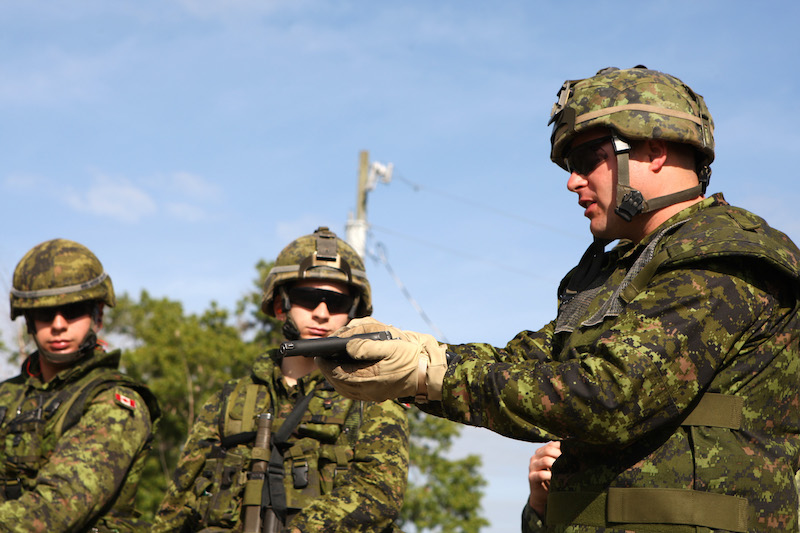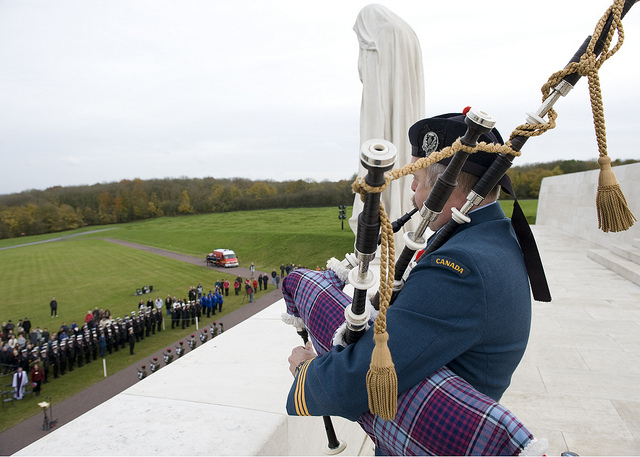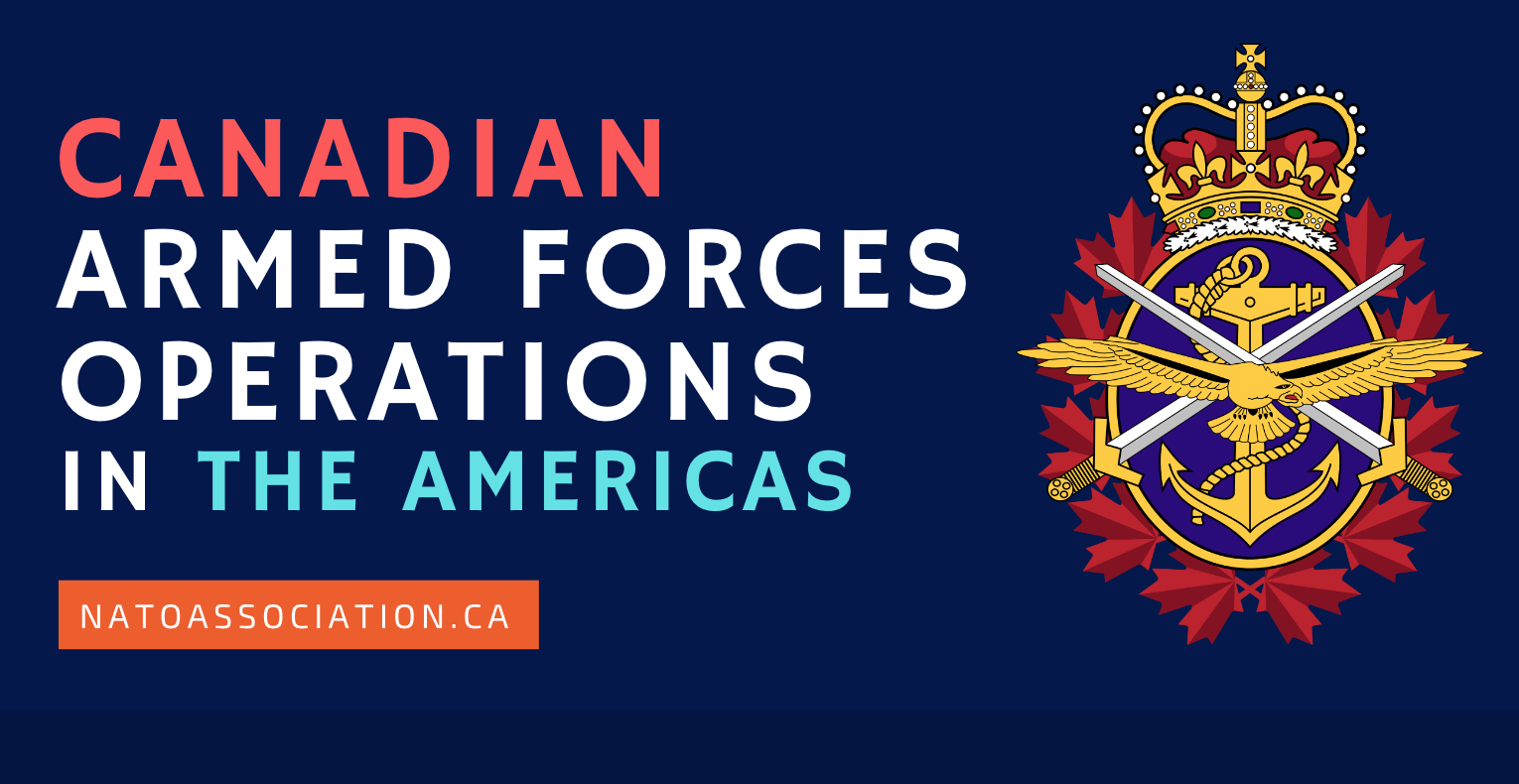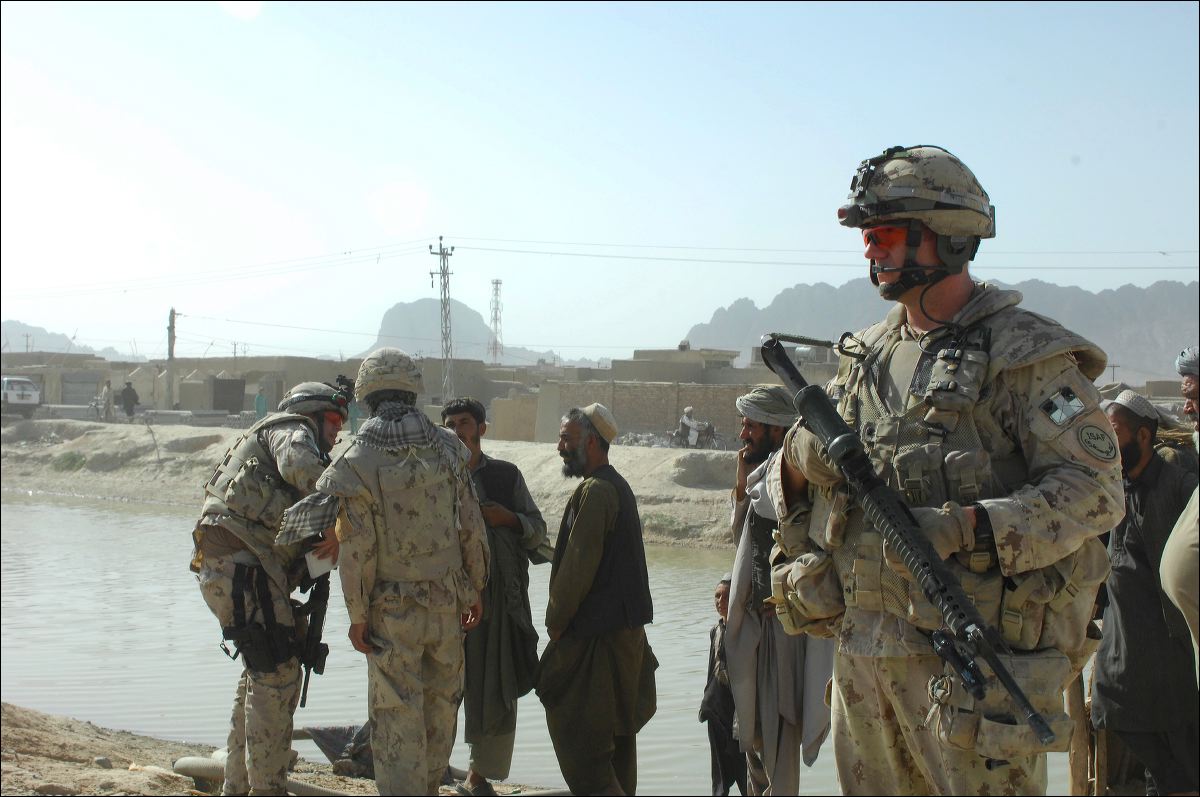Canada is a bilingual country and needs Armed Forces that reflect that reality. The Canadian Armed Forces’ (CAF) rich bilingual history supports its work today while the Forces continue to strive towards fuller bilingualism.
From the legal perspective, the current legislation governing language in the CAF is the Official Languages Act (OLA), which applies to all branches of the federal government. The OLA, first adopted in 1969, still enjoys very high levels of support across the country, with 88% of Canadians who “strongly support” or “somewhat support” it.
In 1998, with the revision of the OLA came Defence Administrative Orders and Directive (DAOD) 5039-0. This document stipulates that the Department of National Defence and the CAF must reflect the reality of a bilingual Canada in their makeup and ensure equal opportunity for advancement and workplace language. Subsequent DAOD 5039 documents have built on this base, with the most recent one in 2012 detailing how CAF members can get language certification. There is also a DAOD that creates the framework for official languages training of CAF members. One institution that helps fulfill those requirements is the Canadian Forces Language Training School in Gatineau, Québec.
In terms of bilingualism’s history, a recent study on bilingualism in the CAF noted that “In the past, the Official Languages Model was used by the CAF to determine which of its units are English, French, bilingual or unspecified language units.” Indeed, some French-language Units (FLUs) have been instrumental in promoting Francophone rights throughout history, and should continue to do so today. The Royal 22e Regiment, the “Van Doos“, is perhaps the most famous example of a French-Canadian unit. First founded during the First World War, the Van Doos quickly gained a reputation for excellence, with two members winning the Victoria Cross. In 1994, a two-volume book titled “French Canadians and Bilingualism in the Canadian Armed Forces” was published by the government highlighting the role of Francophones and the French language in CAF’s successes.
More recently, in 2003, Defence Minister John McCallum said that the CAF was not bilingual enough. According to McCallum, at the time only 43% of military posts that were officially bilingual were filled by bilingual people, and only 40% of senior officers were bilingual. He acknowledged that the situation was unacceptable, and announced new programs to encourage language learning. These programs appear to have worked. Since 2008, 40% of all CAF members are now bilingual, and approximately 73% of regular officers. In a 2015 survey, 26.7% of CAF members were Francophones, speaking French as their first Official Language. Yet in 2016, the lack of bilingual members still persisted, as the “success rate for filling [bilingual] positions with qualified members [was] low”.
The operational assets of bilingualism was highlighted in a 2016 speech to officer cadets, when Commissioner of Official Languages Graham Fraser spoke about the importance of bilingualism in the CAF. He remarked on the recent shift towards a more bilingual CAF, noting that “General Dallaire also told me that ‘bilingualism has never been presented as a fundamental criterion for rising to the rank of officer.’ I believe that this is no longer the case.” Fraser also highlighted how bilingualism assists with the CAF’s involvement in operations in French-speaking countries and joint missions with the French army. There are several of these missions ongoing, including Operation Naberius in Niger training local defence forces, Operation Crocodile in Democratic Republic of the Congo supporting MONUSCO, and Operation Frequence working with the French army in the Sahel region of Africa.
It is clear that bilingualism in the CAF today stems from a long rich history, retains important cultural significance, and provides members with key operational advantages. While bilingualism in the CAF appears to be increasing, and legislation and institutions are supporting that trend, there is still work to be done to reach the CAF’s bilingualism goals.
Canadian Forces Browning Hi-Power (2009), by Lance Cpl. Gallagher via Wikimedia Commons. Public Domain.
Disclaimer: Any views or opinions expressed in articles are solely those of the
authors and do not necessarily represent the views of the NATO Association of
Canada.




